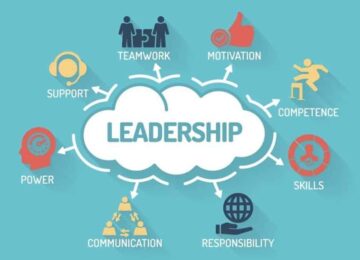To oversee the functionality and ensure the effectiveness of the task, team leadership is crucial. Business success is highly influenced by the hard work and dedication of team leaders. Management, organization, guidance, and performance stability seem plain sailing if the company has effective leaders. If at some point of time, the employee loses their focus and control, leaders are the one who comes to play and ensures everything goes as planned. The role of a leader in an organization can never be neglected. Dr. Richard Nahas is effectively fulfilling leadership roles and showing how the leader should lead the team.
Role of an Effective Leader
Every organization emphasizes recruiting well-qualified, experienced, and skilled leaders to attain the heights of success. According to a Gallup study, 82% of the time, companies fail to hire the right talents. Regardless of what the work is, well-qualified leaders and employees enhance the brand reputation within the market. Great leaders like Bob Iger emphasize strengthening employee engagement, but they are rare in any organization.
Benefits of Hiring Good Leaders in an Organization
Before hiring a leader, management needs to ensure that they are culturally fit and have relevant experience. Around 63.3% of companies say that employee retention is even harder than recruitment as per the research of over 600 US businesses having 50-500 employees. Leaders have a huge role in managing employee morale so that they can work happily. The characteristics and qualities of employees ensure employee engagement. Richard Nahas is a successful leader and an inspiration for young generations. Furthermore, we’ve listed the benefits of hiring good leaders in an organization.
- Leaders have emotional intelligence, which helps them strengthen their relationship with employees. Emotional intelligence involves self-awareness, empathy, self-management, and communication. They can easily identify the needs, expectations, and ambitions of employees.
- They assess the situation with their intuition and find better solutions for critical situations. Even decision-making in difficult circumstances becomes a bit simpler by examining the condition and requirement of the situation thoroughly. This is a function of a leader while leading the team.
- They have a great role in developing vision in employees, but firstly, they build a big picture in their mind. Leader delegates the appropriate responsibilities to deserving and skilled employees by trusting them. They believe in the unique abilities of employees.
- The personality of a leader is highly influential to a large number of employees. Influence is the skill of a leader. They don’t command; they work with the employees for shared goals.
- Leaders take the responsibility of goal completion and guide the team accordingly. They are goal-oriented and always professional with their demeanor. They are responsible for their actions as well.
Conclusion
The role of a good leader is to inspire, influence, and guide the team effectively. They act as communicators, motivators, learners, navigators, and mentors depending on the needs of the situation. Leaders are responsible for developing others. Their behavior and actions greatly determine employee engagement.












